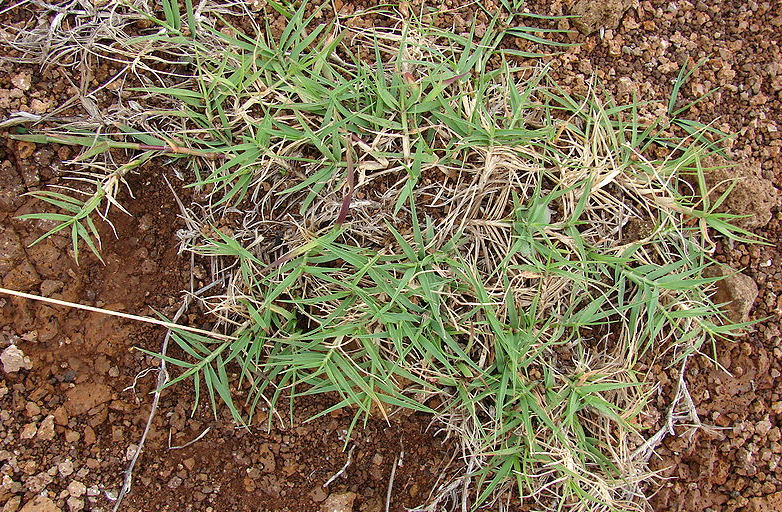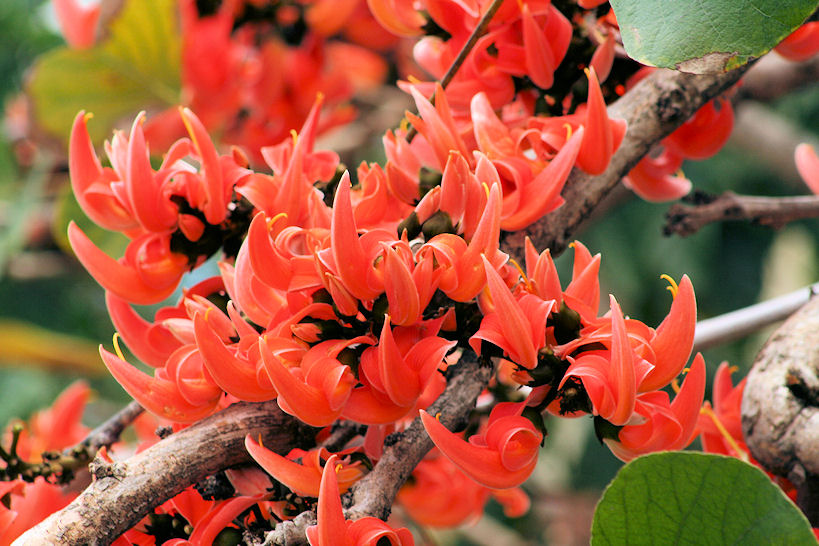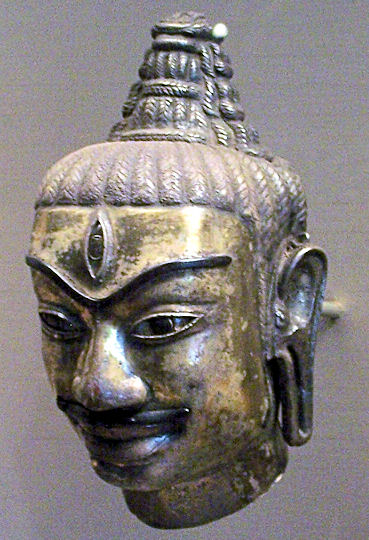

Mit den Auflösungen nach dem "Key" neu herausgegeben von Alois Payer
Zitierweise | cite as:
Apte, Vaman Shivaram <1858 - 1892>: The student's guide to Sanskrit Composition (Being a treatise on Sanskrit Syntax). -- 3. ed. -- 1890. -- 13. Lesson XIII. -- Fassung vom 2010-03-18. -- URL: http://www.payer.de/apte/apte13.htm
Ursprünglich erschienen als:
Apte, Vaman Shivaram <1858 - 1892>: The student's guide to Sanskrit composition : being a treatise on Sanskrit syntax ; for the use of schools and colleges. -- 3rd ed. -- Poona : R. A. Sagoon, 1890. -- 450 S.
A Key to Apte's Guide to Sanskrit composition : giving a close rendering into English and Sanskrit of all the Sanskrit and English sentences / compiled by an experienced graduate teacher. -- 2d ed. -- Bombay : Standard Pub., 1923. -- 136 p. ; 18 cm
Erstmals hier publiziert: 2010-03-18
Überarbeitungen:
©opyright: Public domain
Dieser Text ist Teil der Abteilung Sanskrit von Tüpfli's Global Village Library
Falls Sie die diakritischen Zeichen nicht dargestellt bekommen, installieren Sie eine Schrift mit Diakritika wie z.B. Tahoma.
Die Devanāgarī-Zeichen sind in Unicode kodiert. Sie benötigen also eine Unicode-Devanāgarī-Schrift.
Use of brackets:
<> = Apte`s own Notes (loc. cit. pp. 277ff.)
[] = A Key to Apte's Guide to Sanskrit composition : giving a close rendering into English and Sanskrit of all the Sanskrit and English sentences / compiled by an experienced graduate teacher. -- 2d ed. -- Bombay : Standard Pub., 1923. -- 136 p. ; 18 cm
{} = Notes by Alois Payer
§ 141. All participles in Sanskrit, except the so-called indeclinable past participles or absolutives, are to be regarded as adjectives, agreeing with the nouns they qualify, in gender, number, and case. They are called 'participles' from the supposed participation or sharing in the functions of the verb, the adjective, and the noun. The principal kinds of participles in Sanskrit are these:
(for the rules of formation see Grammar). These participles obey the same rules for governing cases that may have been laid down regarding the roots from which they are derives. Present, Future and Perfect Participles are treated in this lesson.
§ 142. The present participle (for rules of formation see Dr. Kielhorn's Grammar1 § 498 - 500) corresponds to the participle in English ending in 'ing.' It is used when contemporaneity of action is indicated; as, इति विचारयन्नेव दुर्गादवततार (Kādambarī 125) 'while thinking in this manner, he dismounted from his horse'; विवाहकौतुकं बिभ्रत एव तस्य वसुधां हस्तगामिनीमकरोत् (Raghuvaṃśa VIII.1) 'he made over the earth to him while (yet) wearing the marriage-string'; व्रजंश्च समर्थयामास (Kādambarī 141) 'and going, he thought.'
{1 Kielhorn, Franz <1840-1908>: A grammar of the Sanskrit language. -- 3d ed., revised and enlarged -- Bombay, Government Central Book Depôt, 1888. -- xiv, 286 p. : 25 cm. -- Online: http://www.archive.org/details/agrammarsanskri00kielgoog. -- Accessed on 2010-03-11}
The sense of 'while', 'whilst', is thus inherent in this participle which serves to express an idea expressed in English by a whole sentence.
Obs. (a) The Sanskrit participle must never be confounded with the participial substantive or gerund in English which also ends in 'ing'.
(b) When no contemporaneity of action is indicated, this participle cannot be used; as, 'ascending the mountain, they rested for some time' पर्वतमारुह्य ते कंचित्कालं व्यश्राम्यन् and not पर्वतमारोहन्तः &c., unless the sentence implies that both actions are performed at the same time.
(c) The present participle is not used in the nominative case as a predicative adjective. We do not say कुर्वन्नस्ति 'he is doing,' though we say कार्यं कुर्वन्क्रीडति.
§ 143.1 The present participle Ātmanepada is often used to denote 'disposition' or 'habit', 'some standard of age', and 'ability' or 'capacity to do a thing'; as, भोगं भुञ्जानः (Siddhāntakaumudī) 'habituated to enjoy'; कवचं बिभाणः (ibid.) 'wearing an armour' (of the age at which armour may be worn);' शत्रुं निघ्नानः (ibid.) 'able to destroy his foe.'
Compare with the second example: सम्यग्विनीतमथ वर्महरं कुमारं (Raghuvaṃśa VIII.94) where वर्महरः = कवचधारनार्हवयस्कः.
1 ताच्छील्यवयोवचनशक्तिषु चानश् ॥ (Pāṇini III.2.129) {'The affix चानश् comes after a verb in expressing 'habit', 'standard of age' and 'ability'.' Transl. Vasu, 1891}
§ 144.1 The present participle is used to denote an attendant circumstance or attribute, and the cause of an action; as, शयाना भुञ्जते यवनाः (Siddhāntakaumudī) 'the Yavanas take their meals , (by) lying down;' so तिष्ठन्मूत्रयति (Mahābhāṣya); गच्छन्भक्षयति (ibid.); हरिं पश्यन्मुच्यते (Siddhāntakaumudī) 'by (reason of) seeing Hari he gets absolution.' The first sentence is an answer to the question कथं भुञ्जते, and the last to केन मुच्यते.
1 लक्षणहेत्वोः क्रियायाः ॥ (Pāṇini III.2.126) {'The affixes शतृ and शानच् are the substitutes of लट् and come after a verb, in expressing an attendant circumstance or characteristic, and the cause of an action.' Transl. Vasu, 1891}
(a) This participle also defines the agent of an action; as यो ऽधीयान आस्ते स देवदत्तः (Mahābhāṣya) 'he is Devadattta who sits studying'; so य आसीनो ऽधीते स देवदत्तः (ibid.).
Obs. This use corresponds to the restrictive use of the participle in English; 'students, preparing their lessons, will be rewarded' पाठानधीयानाः शिष्याः पारितोषिकाणि लप्स्यन्ते.
(b) This participle is also used to state a general truth; as, शयाना वर्धते दूर्वा (Mahābhāṣya) 'the Dūrvā grass grows (when) in a recumbent position'; आसीन वर्धते बिसं (ibid.) 'a lotus-stalk grows (when) in an upright position.'
{दूर्वा = Cynodon dactylon (L.) Pers. = Bahama grass / Bermuda grass / Star grass.}

Abb.: शयाना वर्धते दूर्वा
Cynodon dactylon (L.)
Pers.
[Source: Forest & Kim Starr / Wikimedia Commons. --
Creative Commons
License (attribution)]

Abb.: आसीन वर्धते बिसम्
Nelumbo nucifera Gaertn., Hyderabad -
హైదరాబాద్
- حیدرآباد
[Source:
J.M.Garg / Wikipedia. -- GNU FDLicense]
§ 145. The roots आस् 'to sit', स्था 'to stand' and rarely भू and अस्, are used with the present participle of roots to show the continuity of the action denoted by them; as, वल्मीकाग्राणि विदारयन्प्रगर्जंश्चास्ते (Pańcatantra I.1) 'kept on pulling down the tops of ant-hills and bellowing loudly;' गीतसमप्त्यवसरं प्रतीक्षमाणस्तथौ (Kādambarī 132) 'continued to await the time of the conclusion of the song.'
§ 146. Verbs like लज्ज्, ह्री 'to be ashamed', are usually used with the present participle of roots in the sense of 'to' in English. एवं निघृणं प्रहसन्न लज्जसे (Kādambarī 247) 'are thou not ashamed to strike so mercilessly?'; स्वयं साहसं संदिशन्ती बाला जिह्रेमि (Kādamnbarī 237) 'I, a young girl, are ashamed to communicate a rash thing myself.'
§ 147. The present participle is rarely used with the prohibitive particle मा to imply a curse; as, मा जीवन्यः प्रावज्ञादुःखदग्धो ऽपि जीवति (Śiśupālavadha II.45) 'cursed he be (lit. may he not live) who, though smitten by the pain of contempt of others, still lives.'
§ 148. The future participle which ends in स्यत् (or ष्यत्) (pass. मान) denotes that a person or thing is going, or is about, to do the action, or to undergo the state, expressed by the root; as, करिष्यन् 'going to do' or 'about to do'; मोक्ष्यन् 'going to lossen'; करिष्यमानं 'being about to be done'.
(a) besides sho0wing simple futurity, it denotes intention or purpose; as, वन्यान्विनोष्यन्निव दुष्टसत्त्वान्स दावं विचचार (Raghuvaṃśa II.8) 'he ranged over the forest as if wishing to tame the wild beasts;' करिष्यमाणः सशरं शरासनं (Raghuvaṃśa III.52) 'intending to fit an arrow to his bow.' This participle thus corresponds to the English prospective form.
Note. Such sentences as 'before taking his departure, he dr5ank a little water' are translated by means of the future participle made to qualify the subject; as, प्रयाणं करिष्यन्स किंजिज्जलं पपौ. 'Before' has here the sense of 'going' or 'about to take' &c.
§ 149. The perfect participle (ending in वस् or आन) is less frequently used. It has the sense of 'who or what has or has been done;' as, श्रेयांसि सर्वाण्यधिजिग्मुषस्ते (Raghuvaṃśa V.34) 'of thee who hast obtained all good things (blessing)'; निषेदुषीमासनवन्धधीरः (Raghuvaṃśa II.6) 'firmly maintaining his seat when she had sat down.'
सा टिट्टिभी स्वाण्डभङ्गाभिभूता प्रलापान्कुर्वाणा न कथंचिदतिष्ठत् ॥१॥ (Pańcatantra I.15)
[Key: That female lapwing, overpowered by the destruction of her eggs, could not stop lamenting by any means.]
{टिट्टिभः = Vanellus sp.; i.e. Vanellus indicus Boddaert = Red-wattled Lapwing or Vanellus malabaricus Boddaert = Yellow-wattled Lapwing or Vanellus duvaucelii Lesson = River Lapwing}

Abb.: टिट्टिभः
Vanellus
indicus Boddaert = Red-wattled Lapwing
भोपाल,
मध्य प्रदेश
[Source:
J.M.Garg / Wikipedia. -- GNU FDLicense]

Abb.: टिट्टिभः
Vanellus
malabaricus Boddaert = Yellow-wattled Lapwing
[Source:
S. M. Jayanth / Wikipedia.
-- Creative Commons
License (attribution)]

Abb.: टिट्टिभः
Vanellus
duvaucelii Lesson = River Lapwing
Jayanti (জয়ন্তী)
in Buxa Tiger Reserve (বক্সা
জাতীয় উদ্যান) in Jalpaiguri district (জলপাইগুড়ি)
of West Bengal (পশ্চিম বঙ্গ)
[Source:
J.M.Garg / Wikipedia. -- GNU FDLicense]
अथ द्वावपि तौ पुष्पितपलाशप्रतिमौ परस्परवधकांक्षिणौ दृष्ट्वा करटको दमनकमाह । भो मूढमेते अनयोर्विरोधं वितन्वता त्वया न साधु कृतम् ॥२॥ (Pańcatantra I.16)
[Key: पुष्पाण्यस्य संजातानि असौ पुष्पितः पुष्पितश्चासौ पलाशश्च पुष्पितपलाशः ; पुश्पितपलाशः प्रतिमा तयोः or पलाशेन प्रतिमा (प्रतिमियेते इति) । परस्परस्य वधः परस्परवधः तमाकांक्षेते इति परस्परवधकांक्षिणौ । मूढा मतिर्यस्य ।
Then seeing both of them looking like a Palāśa tree in blossom and desirous of (bent on) killing each other, Karaṭaka said to Damanaka - O you of a perverted mind, or O silly one, you did not do well in bringing about enmity (or, a feud) between these two.]
{पलाशः = Butea monosperma (Lam.) Taub., 1894}

Abb.: पुष्पितपलाशः
= Butea monosperma
(Lam.) Taub.
[Source:
petrichor. --
http://www.flickr.com/photos/petrichor/2788581403/. -- Downloaded on
2010-03-17. -- Creative Commons License (attribution, no commercial use, no
derivatives)]
राजा विस्फारितेन स्निग्धेन चक्षुषा पिबन्निवालपन्निव स्पृशन्निव मनोरथसहस्रप्राप्तदर्शनं सस्पृहमीक्षमाणस्तनयाननं मुमुदे । कृतकृत्यं चात्मानं मेने ॥३॥ (Kādambarī 72)
[Key: मनोरथानां सहस्रं तेन प्राप्तं दर्शनं यस्य ।
The king intently looking at the face of his son, the sight of which was obtained after a thousand longings, as if drinking it in or talking with it or touching it with the eyes expanded, and full of tenderness (or affection) rejoiced and thought himself blessed.]
साहित्यसंगीतकलाविहीनाः साक्षात्पशुः पुच्छविषाणहीनः ।
तृणं न खादन्नपि जीवमानस्तद्भागधेयं परमं पशूनाम् ॥४॥ (Nītiśataka 12)
[Key: साहित्यं च संगीतं च कलाश्च ताभिर्विहीनः । पुच्छं च विषाणे च पुच्छविषानम् तेन हीनः ।
A man, who is destitute of (the knowledge) of poetics, music and the fine arts, is a beast itself, not having a tail and horns; he lives habitually although not eating grass; and that is the highest fortune of beasts.]
सज्जीभूतं साधनम् । प्रयाणाभिमुखः सकलः स्कन्धावारस्त्वां प्रतिपालयन्नास्ते । तत्किमद्यापि विलंबितेन ॥५॥ (Kādambarī 277)
[Key: प्रयाणस्याभिमुखः प्रयाणाभिमुखः ।
The vehicles have been got ready; the whole army is ready for marching and is waiting for you; what is the use of waiting then even now?]
राजाधिराजनन्दन नगरन्ध्रगत्स्य ते गतिं ज्ञास्यन्नहं च गतः कदाचित्कलिंगान् ॥६॥ (Daśakumāracarita II.7)
<Notes: ते गतिं ज्ञास्यन् 'wishing to know your fate,' what had become of you.>
[Key: राज्ञामदिराजः राजाधिराजः तस्य नन्दन । नगस्य रन्ध्रं नगरन्ध्रं तद्गतः तस्य ।
Prince, son of his Imperial Majesty wishing to know waht had become of you who had entered the mountain-cave I went, one day, to the country of Kaliṅga.]

Abb.: कलिङ्गाः
[Source: Deepak gupta / Wikipedia.
-- Public domain]
अनुयास्यन्मुनितनयां सहसा विनयेन वारितप्रसरः ।
स्थानादनुच्चलन्नपि गत्वेव पुनः प्रतिनिवृत्तः ॥७॥ (Śakuntalā 1)
<Notes: वारितप्रसरः 'prevented from advancing.'>
[Key: Wishing to follow the daughter of the sage but with my motion foreward at once arrested by modesty (propriety of conduct), I, as it were, returned after having gone forth, though I did not move from my place.]
वामनाश्रमपदं ततः परं पावनं श्रुतमृषेरुपेयिवान् ।
जन्मनाः प्रथमजन्मचेष्टितान्यस्मरन्नपि बभूव राघवः ॥८॥ (Raghuvaṃśa XI.22)
<Notes: श्रुतमृषेः 'learnt from the sage', of which he had heard from the sage. c/d: 'Rāghava became excited though he was not conscious of the acts of his former existence (in th Dwarf incarnation).'>
[Key: ततः परं ऋषेः (विश्वमित्रात्) श्रुतं पावनं वामनाश्रमपदं उपेयिवान्(Nom. sing. of the perf. part. of इ with उप उपेयिवस्) राघवः प्रथमजन्मचेष्टितान्यस्मरन्नपि उद्गतं मनो यस्य स उन्मना अभवत् ।
After that the descendant of Raghu, having arrived at the purifying hermitage of Vāmana (Viṣṇu's dwarf incarnation), of which he heard from the sage, became agitated at heart, though he did not remember his acts in his previous life.]

Abb.: वामनः
[Source: Mayapur. --
http://www.flickr.com/photos/mayapur/2894602262/. -- Downloaded on
2010-03-17. --
Creative Commons License (attribution, no derivatives)]
आसीच्च मे मनसि । शांतात्मन्यस्मिञ्जने मां निक्षिपता किमिदमनार्येणासदृशमारब्धं मनसिजेन ॥१॥ (Kādambarī 142)
<Notes: Said by Mahāśvetā, when her mind was drawn by Cupid towards the holy sage Puṇḍarīka.>
[Key: शान्त आत्मा यस्य तस्मिन् । न आर्यः अनार्यस्तेन ।
I thought to myself - what is this that is set on foot by the wicked got of love (the mind-born) who has impelled me towards (excited live in me for) this person who is tranquil (free from passion).]
अग्रजन्माब्रवीत् । महाभाग सुतानेतान्मातृहीनाननेकैरुपायै रक्षन्निदानीमस्मिन्कुदेशे भैक्षं साम्पाद्य दददेतेभ्यो वसामि शिवालये ऽस्मिन्निति ॥२॥ (Daśakumāracarita I.3)
[Key: अग्र जन्म यस्यासौ अग्रजन्मा । महान्भागो यस्य ।
The Brāhmaṇa said - Magnanimous one, I, protecting (maintaining) these sons who are bereft of their mother by various efforts now live in this temple of Śiva procuring food by beggin {in this bad country} and giving it to them.]
विवादे दर्शयिष्यन्तम्
क्रियासंक्रान्तिमात्मनः ।
यदि मां नानुजानासि परित्यक्तो
ऽस्म्यहं त्वया ॥३॥ (Mālavikāgnimitra 1)
<Notes: Said by Gaṇadāsa, when Dhāriṇī was not willing to allow him to exhibit his skill acting in the person of his pupil Mālavikā. क्रियासंक्रान्ति 'the power of transferring or imparting to another what one knows or can do.'>
[Key: दर्शयिष्यन्तं Fut. part. of the caus. of दृश्. क्रियायाः संक्रान्तिः क्रियासंक्रान्तिस्ताम् ।
If you do not give your consent to me who wish to exhibit my power to transfer my skill (to my pupil) in this dispute, I shall consider myself as given up by you.]
अविदित्वात्मनः शक्तिं परस्य च
समुत्सुकः ।
गच्छन्नभिमुखे वह्नौ नाशं याति पतंगवत् ॥४॥ (Pańcatantra I.8)
[Key: A man, who, without knowing (ascertaining) his own power as well as that of his enemy, goes forth (attacks his enemy), meets with destruction like a moth in fire.]

Abb.: वह्नौ नाशं याति पतंगवत्
[Source: Aquila. --
http://www.flickr.com/photos/aquilaonline/2358154092/. -- Downloaded on
2010-03-17. --
Creative Commons License (attribution, no commercial use)]
अन्तर्लीनस्य
दुःखग्नेरद्योद्दामं ज्वलिष्यतः ।
उत्पीड इव धूमस्य मोहः प्रागावृणोति माम् ॥५॥ (Uttararāmacarita 3)
[Key: दुःखमेवाग्निर्दुःखाग्निः तस्य । उद्गतं दामं यस्मिन्कर्मणि तद्यथा तथा ।
Infatuation seizes upon me as if it were the thick column of smoke of the fire of grief going to blaze forth unchecked today.]
आदिदेशाथ शत्रुघ्नं तेषां
क्षेमाय राघवः ।
करिष्यन्निव नामास्य यथार्थमरिनिग्रहात् ॥६॥ (Raghuvaṃśa XV.6)
<Notes: क्षमाय "for security", to ensure their safety. शत्रून्हन्तीति शत्रुघ्नः and hence the significance of his name.>
[Key: अर्थमनतिक्रम्य वर्तते तद्यथार्थम् । अरीणां निग्रहः अरिनिग्रहस्तस्मात् ।
Then Rāma (the descendant of Raghu) ordered Śatrughna to ensure safety to them, thereby wishing, as it were, to give a meaning to his name. See notes.]
कदा
वाराणास्याममरतटिनीरोधसि वसन्
वसानः कौपीनं शिरसि निदधानो
ऽञ्जलिपुटम् ।
अये गौरीनाथ त्रिपुरहर शंभो त्रिनयन
प्रसीदेत्याक्रोशन्निमिषमिव नेष्यामि दिवसान् ॥७॥ (Vairāgyaśataka 10)
[Key: अमराणां तटिनी अमरतटिनी तस्या रोधसि । अञ्जलेः पुट्मञ्जलिपुटम् । त्रिपुरम् हरतीति ।
When shall I, living on the bank of the Ganges, wearing a Kaupīna (strap) and crying out, with my joined hollowed palms (placed) across my forehead, - O lord of Gaurī, destroyer of the three cities (of the Rākṣasas), O Śambhu and O three-eyed god, be pleased, - pass my days like a twinkling of the eye!]
|
|
|
|
Abb.: कौपीनम् Puducherry - புதுச்சேரி [Source: dhyanji. -- http://www.flickr.com/photos/dhyanji/76685057/ and http://www.flickr.com/photos/dhyanji/75973395/. -- Downloaded on 2010-03-17. -- Creative Commons License (attribution, no commercial use, no derivatives)] |
|

Abb.: त्रिनयनः
Campa - चंपा - 占城, ca. 800 A. D.
[Source: DoktorMax / Wikimedia Commons. -- Public domain]
तं तस्थिवासं नगरोपकण्ठे
तदागमारूढगुरुप्रहर्षः ।
प्रत्युज्जगाम क्रथकैशिकेन्द्रश्चन्द्रं प्रवृद्धोर्मिरिवोर्मिमाली ॥८॥ (Raghuvaṃśa
V.61)
<Notes: क्रथकैशिकेन्द्रः = भोजः, the king of the Vaidarbhas. चंद्रं &c. 'like the sea, with its surging waves, going to meet the moon,' which occurs at the phenomenon known as Tides.>
[Key: नगरस्योपकण्ठं तस्मिन् । तस्यगमनं तदागमनं तेन उपरूढः गुरुः प्रहर्षः यस्य । क्रथकैशिकानां इन्द्रः । प्रवृद्धा उर्मयो यस्य सः । ऊर्मीणां मालास्यास्तीति ऊर्मिमाली ।
The Lord of the Krathakaiśikas, in whom intense delight was produced by his coming, went forth to receive him, who had halted in the vicinity of the city, as the sea (lit. the possessor of wreaths or lines of billows) with its swelling waves does the moon.]
All translations from the Key.
N. B. - In the following sentences use participles for the italicized words.
1. I saw many men on the road bearing loads of corn on their heads and walking gently, talking with each other.
अहं मार्गे शिरोभिर्धान्यस्य भारान्वहतः मन्दं मन्दं or मन्दपदं चरतः परस्परेणालपतश्च बहून्नरानपश्यम् ॥१॥
2. While going to England in a ship, one may see several beautiful scenes.
नावाङ्ग्लभूमिं गच्छन्नरो बहूनि रमणीयानि दृश्यवस्तूनि or स्थानानि पश्येत् ॥२॥
3. Oh, the beauty of this picture! The painter has fully shown his skill in making the several parts so charming to the eye.
अहो आलेक्यस्यास्य सौन्दर्यं or रमणीयत्वम् । चित्रकारेण तांस्तानवयवान्दृष्टिविलोभनीयान् or नयनाभिरामान् or रुचिरदर्शनानालिखता or उन्मीलयता साकल्येन or संपूर्णं दर्शितमात्मनः कौशलम् ॥३॥
4. Is he not ashamed (ह्री) to communicate such a message to me through you?
ईदृशं संदेशं त्वन्मुखेन मह्यं निवेदयन्स न जिह्रेति किम् ॥४॥
5. Rati, looking at the dead body of her husband, and remembering his diverse good qualities, kept on (स्था) weeping for a long time.
भर्तुर्मृतं शरीरमवलोकयन्ती तस्य विविधान्गुणान्स्मरन्ती च रतिश्चिरं रुदती तस्थौ ॥५॥
{"In Hinduism, Rati (also called Rūpiņī) is the goddess of passion and lust, and a daughter of Dakṣa. She married Kāma, the god of love." http://en.wikipedia.org/wiki/Rati. -- Accessed on 2010-03-18}
6. When Candrāpīḍa was about to be crowned (सिच् with अभि) as heir-apparent to the throne, Śukanāsa advised him, directing his attention to many important things.
शुकनासो यौवराज्ये ऽभिषेक्ष्यमाणं चन्द्रापीडं तस्य मनो गुरुकार्येषु or महत्स्वर्थेषु नियोजयितुं or आसञ्जयितुमुपदिदेश अनुशासितवान् ॥६॥
7. Wishing to become proficient in Nyāya, he went to Benares and studied there for several days.
न्याये प्रावीण्यं लब्धुमिच्छन् or लिप्सुः स वाराणसीमगच्छत्तत्र च कतिचिद्दिनानि तदधिजगे ॥७॥
8. Before giving (दा) Gopāla the reward I had promised him to give, I asked him if he would consider it unworthy of its exertions.
गोपलाय प्रतिश्रुतं पारितोषिकं दास्यन्नहमपृच्छमिदमात्मनः श्रमाणामननुरूपं or अपर्याप्तं मन्येथाः किमिति ॥८॥
9. Reeds, because they bow down to a stronger foe, are saved, while huge oak trees, proudly standing up, are swept away by the current of water.
बलीयांसं शत्रुं प्रणमन्तो वेतसा रक्ष्यन्ते or सुरक्षितास्तिष्ठन्ति । विशाला वृक्षास्तूद्धतं or उच्छ्रायेण तिष्ठन्तो जलरयेणपनीयन्ते - दाम्यन्ते ॥९॥
{वेतसः is originally not reed, but Calamus rotang L., rotang or Rattan Palm; reed is कीचकः or धमनः}
10. The lion kept on killing beasts of the forest in their turn.
सिंहः पर्यायेण वन्यपशूनां वधं कुर्वन्नास्ते ॥१०॥
11. You should not bear hatred towards (द्रुह्) this Brāhmaṇa who has studied (इ with अधि) the four Vedas, mastered completely the six Aṅgas, and has seen the end of (fully mastered) the four Śāstras.
युष्माभिश्चतुरो वेदानधिजगानाय षट्स्वङ्गेषु परं प्राविण्यं जग्मुषे चतुर्णां शास्त्राणां पारं ददृशुषे ऽस्मै ब्राह्मणाय द्रुह्यद्भिर्न भाव्यम् ॥११॥
12. Janaka gave his daughter Sītā to Rāma who had broken the bow of Śiva and attracted the minds of the beholders by his uncommon strength and skill.
जनकः शिवधनुर्बभञ्जुष आत्मनओ ऽसाधारणेन or असामान्येन बलेन प्राविण्येन च प्रेक्षकाणां मनांस्याजह्रुषे रामाय सीतां ददौ ॥१२॥
To Lesson XIV.